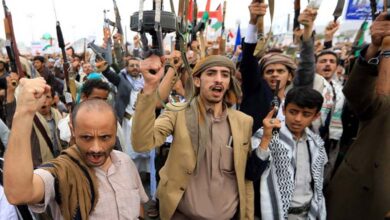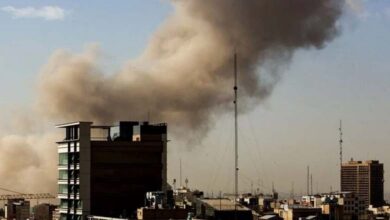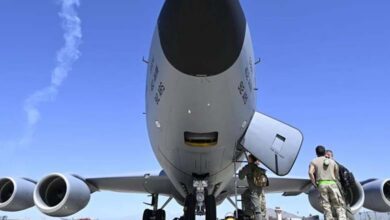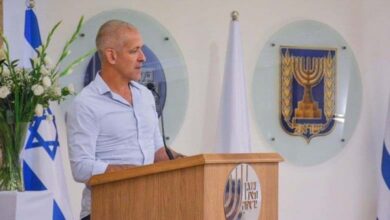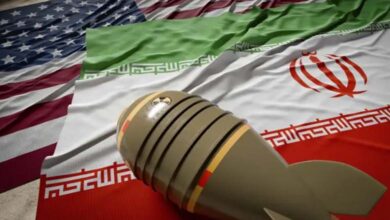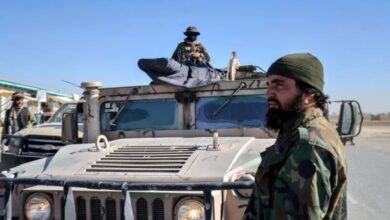Naim Qassem Does Not Rule Out a New War with Israel
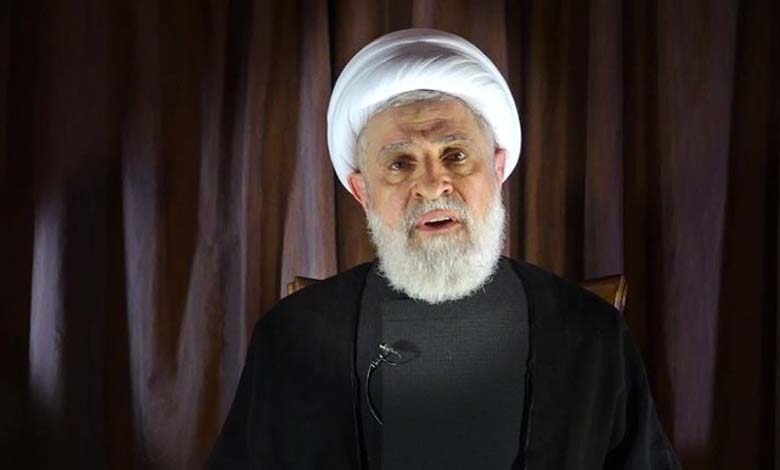
Naim Qassem, described here as Hezbollah’s secretary-general, did not rule out the outbreak of a new war with Israel, calling on it to implement the ceasefire and reaffirming his movement’s declared position of retaining arms “to confront Israel and defend Lebanon and the region,” amid growing internal and external pressure to place weapons exclusively under state control.
-
Millions for Information on a Hezbollah Financier: Who is Ali Qasir, Wanted by Washington?
-
Hezbollah member injured in Israeli strike on Lebanon
Qassem insisted that holding on to the arsenal is a choice based on what he called the “components of defense and resistance,” and he blamed Washington and Tel Aviv for what he characterized as attempts to harm Lebanon and drag it into regional conflicts. This rhetoric, together with President Michel Aoun’s insistence that the state alone must have the right to bear arms, raises renewed questions about the future of internal stability and the risk of a broader unraveling that could overwhelm the currently fragile situation.
In an interview with al-Manar TV marking the anniversary of his appointment, Qassem reiterated that the “resistance” has no aspiration to start a war but acts in self-defense when targeted, arguing that the principle of retaliation stands because any withdrawal would be “a concession that leads to loss of land and existence.” He said the phase of backing Gaza had been entirely defensive from start to finish, and that their objective was to protect territory and respond to what they viewed as aggression and occupation.
-
Lawsuit Filed Against Hezbollah’s Deputy Secretary-General for Threatening Lebanon with Civil War
-
Hezbollah and disarmament: cautious approval or a tactic to buy time?
Repeatedly in the interview, Qassem warned that any complacency could give Israel room to expand, asserting that “if we do not respond to Israel, instead of taking a span of land it will take all the land.” He added that the resistance, in his view, is capable of protecting the country even in worst-case scenarios: “If all that remains of us is a plank, we will not allow the Israeli to pass… we will fight him even if there is not a single man or woman left among us.”
Yet, this justification for the party’s arsenal carries significant political and security implications domestically. Hezbollah’s insistence on retention of arms comes as U.S. pressure increases and Israeli threats persist, while President Michel Aoun presses for the exclusive right of the state to bear arms. This tension between the principle of “institutional legitimacy” and the resistance’s stance could push Lebanon into deeper polarization, particularly if state institutions fail to offer a credible response to border challenges and incursions.
-
Joseph Aoun Seeks to Avoid Fallout from Hezbollah Disarmament
-
Hezbollah threatens civil war in Lebanon and warns of a Karbala-style battle
Qassem hinted at a degree of cooperation with the state when he said the party “handed over the trust to the institutions” during a period of calm and consensus, and that it had awaited the authorities to fulfill their duty to defend and extend sovereignty. He nevertheless criticized what he deemed official inertia, saying “ten months have passed and you cannot move even a little,” and holding the state responsible for regaining the initiative against Israeli threats. These remarks reflect a dual posture: a formal acceptance of the state’s role combined with a practical refusal of any decision that might undermine the party’s possession of arms, which it views as a central deterrent.
Internationally, Qassem intensified accusations that the United States and Israel seek to undermine Lebanon’s internal balance through policies that foment divisions and weaken specific components. He argued that the aim of such pressure is to secure political gains for the United States that Israel could not achieve militarily. Within this framework, Qassem directed strong criticism at what he labeled “enemies,” warning of the danger of violating ceasefire understandings that have provided a relative framework for de-escalation.
-
Hezbollah threatens Lebanon with a Karbala-style battle to keep its weapons
-
Hezbollah Faces a Silent Collapse: Missing Leadership, Besieged Weapons
The most salient warning is that continued policies of retaining weapons outside state control carry the risk of escalation: either via renewed hostilities with Israel or through intensified internal disputes over the legitimacy of arms and their regulation. Analysts suggest Lebanon might see “further escalation” if a militant discourse that legitimizes armed action as a remedy for disputes persists, while others argue Hezbollah balances the desire to preserve deterrence against the need to avoid a full-scale war that could destroy the country.
Citing the movement’s history since 1982, Qassem argued that the resistance “liberated Lebanon and taught Israel a lesson,” using this record to vindicate the continued possession of arms as a legitimate right of defense as long as the enemy threatens the land. Although he stated the party is open to coordinating any popular resistance with the army, he emphasized that “the Lebanese state decides how it wants to act domestically to deal with armed and unarmed issues,” asserting that Israel has no role in Lebanon’s internal decisions.
-
Beirut Port Explosion Anniversary: Justice Moves Forward Despite Hezbollah’s Obstruction
-
U.S. Patience Wears Thin as Hezbollah Disarmament Stalls
In closing, he reiterated that the choice of “resistance” is defensive and enduring: “Our decision is to defend and resist to the last breath; let the enemy try to disarm us himself.” Yet, regardless of the resolve behind this statement, it raises serious questions about Lebanon’s prospects for civic peace, particularly if such positions coincide with intensified external pressures and military threats that could push domestic actors toward harder stances.




